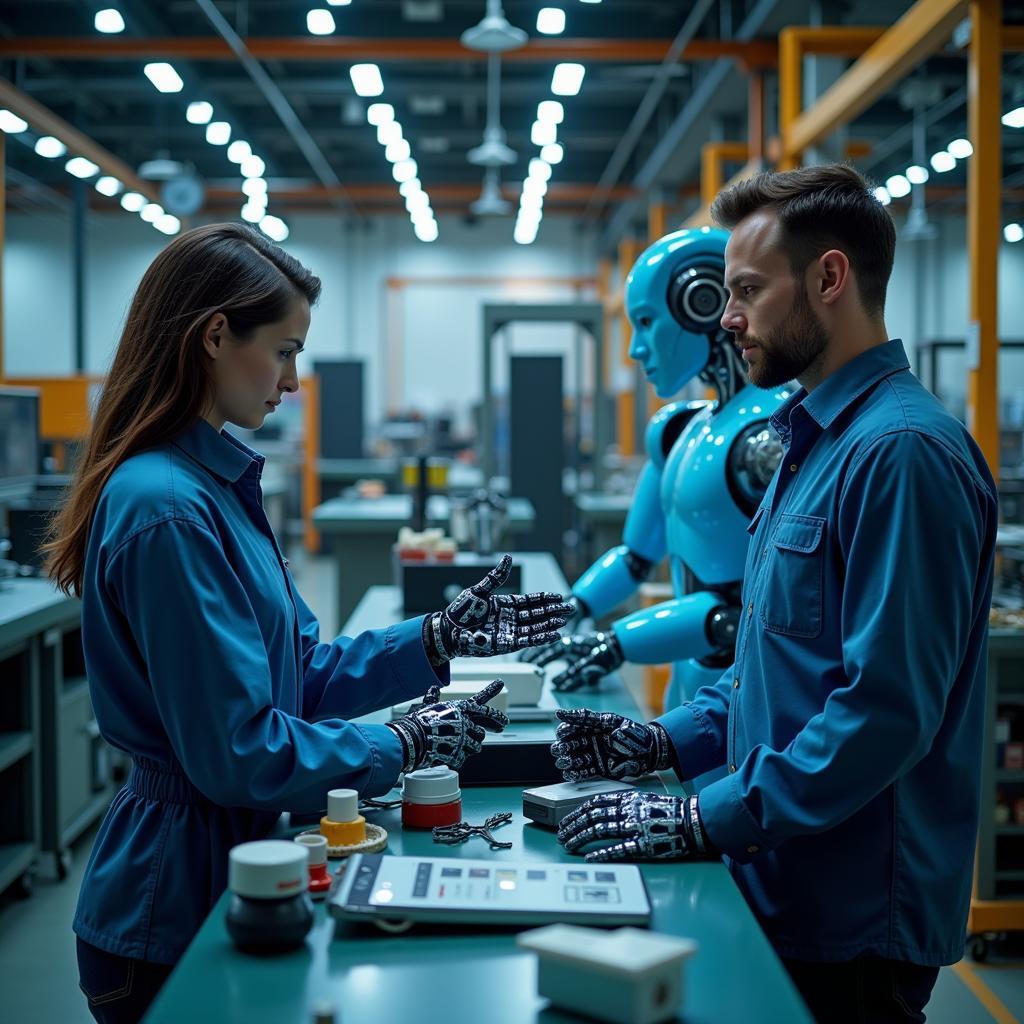The topic of how technology impacts future employment has been appearing frequently in IELTS Writing Task 2 exams over the past few years. Based on analysis of past papers, questions about workplace automation, AI, and changing job markets typically appear 2-3 times annually. Let’s examine a common task 2 question on this theme:
Some people believe that in the future, robots and artificial intelligence will replace most human workers. Others think humans will always be needed in the workplace. Discuss both views and give your opinion.
Task Analysis
- Topic: Impact of automation/AI on future employment
- Task type: Discussion + Opinion
- Key points to address:
- View 1: Technology will replace human workers
- View 2: Humans will remain essential
- Personal stance with supporting arguments

Sample Essay 1 (Band 8.5)
The question of whether artificial intelligence and robotics will eventually make human workers obsolete is highly debated. While some predict widespread technological displacement of jobs, others maintain that human input will remain irreplaceable. In my view, while automation will significantly transform employment, humans will continue playing vital roles albeit in evolving capacities.
Those who foresee robots dominating the workforce point to rapid advances in AI capabilities. Many routine and repetitive tasks across manufacturing, customer service, and even professional sectors can now be performed more efficiently by machines. For instance, automated assembly lines have already replaced numerous factory workers, while AI-powered chatbots increasingly handle basic customer inquiries. This trend is likely to accelerate as technology becomes more sophisticated.
However, proponents of continued human relevance make compelling counterarguments. Human workers possess unique qualities that machines cannot replicate – creativity, emotional intelligence, complex problem-solving, and adaptability. Fields requiring empathy and interpersonal skills, like healthcare, education, and counseling, will continue needing human touch. Additionally, new technologies typically create different types of jobs even as they eliminate others.
In my assessment, the future workplace will be characterized by human-machine collaboration rather than complete automation. While AI and robots will undoubtedly take over many current jobs, humans will adapt by focusing on roles that leverage distinctly human capabilities. The key lies in developing skills that complement rather than compete with technology – such as creative thinking, strategic planning, and emotional intelligence. This will require significant investment in education and retraining programs.
Sample Essay 2 (Band 6.5)
Nowadays, many people worry about robots and AI taking human jobs in the future. Some think machines will do everything, but others believe humans are still important. I will discuss both sides and share my thoughts.
People who think robots will replace workers have some good points. Machines can work 24/7 without getting tired and make fewer mistakes than humans. For example, in factories, robots already do many jobs that people used to do. AI can also do office work like data entry and basic customer service better than humans.
On the other hand, humans have special abilities that robots don’t have. We can think creatively, understand emotions, and solve complicated problems. Many jobs need human skills like teaching, nursing, and counseling. Also, when new technology comes, it usually creates new types of jobs for people.
I think both humans and machines will work together in the future. Some jobs will be done by robots, but humans will still be needed for many important tasks. People should learn new skills that machines can’t do easily. This means we need good training and education to prepare for the future.
Scoring Analysis
Band 8.5 Essay:
- Task Response: Fully addresses all parts with well-developed ideas
- Coherence/Cohesion: Logical organization, effective paragraphing
- Vocabulary: Sophisticated word choice and accurate usage
- Grammar: Wide range of complex structures used accurately
Band 6.5 Essay:
- Task Response: Addresses main points but less developed
- Coherence/Cohesion: Basic organization with some linking
- Vocabulary: Adequate but simpler vocabulary
- Grammar: Mix of simple and complex structures with some errors
Key Vocabulary
- artificial intelligence (n) /ˌɑːtɪˈfɪʃəl ɪnˈtelɪdʒəns/ – computer systems able to perform tasks requiring human intelligence
- obsolete (adj) /ˈɒbsəliːt/ – no longer useful, out of date
- automation (n) /ˌɔːtəˈmeɪʃən/ – use of machines to do work automatically
- displacement (n) /dɪsˈpleɪsmənt/ – forced removal from a position
- empathy (n) /ˈempəθi/ – ability to understand others’ feelings
For practice, try writing your own essay addressing how specific industries might be affected by automation in the next decade. Share your response in the comments for feedback and discussion.